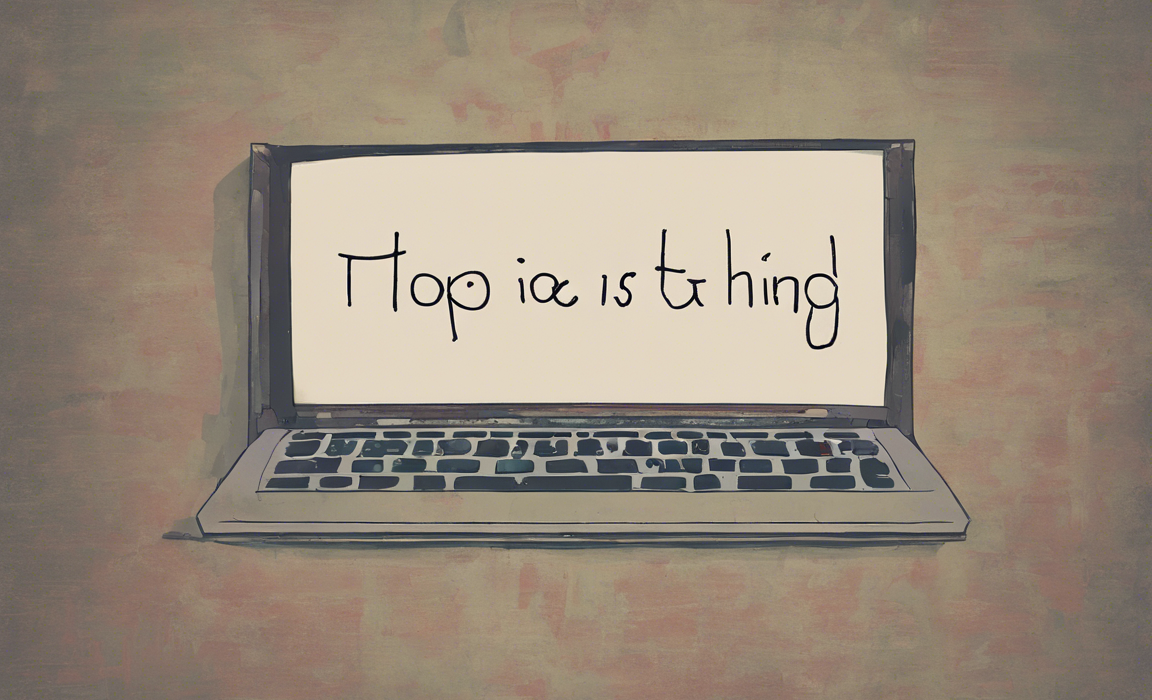In times of uncertainty, adversity, and challenges, hope emerges as a powerful force that has the potential to transform our lives and shape our future. Hope is not merely a fleeting emotion or wishful thinking; rather, it is a profound belief in the possibility of positive outcomes and a resilient mindset that drives us forward despite obstacles. This article explores the significance of hope in our lives, its impact on mental well-being, strategies for cultivating and maintaining hope, and the role of hope in creating a better world.
The Power of Hope
At its core, hope is the inner conviction that things can get better, that a brighter future is possible, and that our efforts can make a difference. It is the antidote to despair, cynicism, and resignation. Research in psychology and neuroscience has demonstrated that hope is not just a feel-good sentiment; it is a vital psychological resource that fuels motivation, resilience, and creativity.
Psychological Benefits of Hope
- Resilience: Individuals with high levels of hope are better equipped to bounce back from setbacks, adapt to change, and persevere in the face of adversity.
- Optimism: Hope fosters a positive outlook on life, leading to greater optimism, emotional well-being, and overall life satisfaction.
- Stress Reduction: Maintaining a sense of hope has been linked to lower levels of stress, anxiety, and depression, as individuals are better able to cope with challenges.
- Health and Healing: Studies have shown that hopeful individuals tend to have better physical health outcomes, faster recovery rates, and stronger immune systems.
Cultivating Hope
While hope may come naturally to some, it is a skill that can be developed and nurtured through intentional practice and mindset shifts. Here are some strategies to cultivate and enhance hope in your life:
Setting Realistic Goals
- Break Down Goals: Divide your aspirations into smaller, achievable steps to build momentum and a sense of progress.
- Celebrate Progress: Acknowledge and celebrate your successes, no matter how small, to fuel a sense of accomplishment.
- Visualize Success: Imagine yourself accomplishing your goals and experiencing the positive outcomes to reinforce hope.
Building Supportive Relationships
- Connect with Others: Surround yourself with individuals who uplift, encourage, and believe in you, fostering a sense of community and shared hope.
- Seek Mentorship: Learn from others who have overcome similar challenges and draw inspiration from their journeys.
- Offer Support: By supporting others in their hope journeys, you can also reinforce your own sense of hope and purpose.
Practicing Self-Compassion and Mindfulness
- Cultivate Self-Kindness: Treat yourself with compassion, understanding that setbacks are a natural part of growth and learning.
- Stay Present: Practice mindfulness to stay grounded in the present moment, alleviating worries about the future and past regrets.
- Gratitude: Cultivate a sense of gratitude for the blessings in your life, shifting your focus from scarcity to abundance and bolstering hope.
Hope in Action: Creating a Better World
Beyond individual well-being, hope plays a pivotal role in driving social change, fostering resilience in communities, and shaping a more just and equitable world. When individuals come together with a shared vision and hope for a better future, transformative action becomes possible. Here are some ways hope can manifest at a collective level:
Social Activism and Advocacy
- Inspiring Change: Hope fuels social movements by inspiring individuals to stand up for justice, equality, and human rights.
- Resilient Communities: In the face of adversity and crises, hope binds communities together, enabling them to support each other and rebuild stronger.
- Policy and Systemic Change: Hope drives systemic change by challenging injustices, advocating for policy reforms, and envisioning a more inclusive society.
Education and Empowerment
- Empowering Youth: Instilling hope in the younger generation equips them with the resilience and optimism needed to navigate challenges and create positive change.
- Creating Opportunities: Education and mentorship programs that foster hope provide individuals with the tools and resources to overcome barriers and achieve their goals.
- Promoting Equity: By addressing systemic barriers to hope, such as poverty, discrimination, and lack of access to resources, societies can create a more level playing field for all.
Frequently Asked Questions (FAQs)
- What is the difference between hope and optimism?
-
Hope is a belief in the possibility of positive outcomes and the agency to make them happen, while optimism is a general expectation that things will turn out well.
-
Can hope be learned or developed?
-
Yes, hope is a skill that can be cultivated through practices such as goal-setting, building supportive relationships, and practicing self-compassion.
-
How does hope influence mental health?
-
Hope has been linked to improved mental health outcomes, including reduced levels of stress, anxiety, and depression, as well as greater resilience in facing challenges.
-
Is hope just wishful thinking or does it lead to action?
-
While hope involves believing in positive outcomes, it also motivates individuals to take action, persevere in the face of obstacles, and work towards their goals.
-
What role does hope play in social change and activism?
- Hope is a driving force behind social change, inspiring individuals to advocate for justice, equality, and systemic reforms, and envision a better future for all.
In conclusion, hope serves as a beacon of light in the midst of darkness, guiding us towards a better tomorrow and empowering us to overcome challenges with resilience and determination. By embracing hope as a transformative force for good, both individually and collectively, we can create a more compassionate, equitable, and hopeful world for future generations to thrive in.


